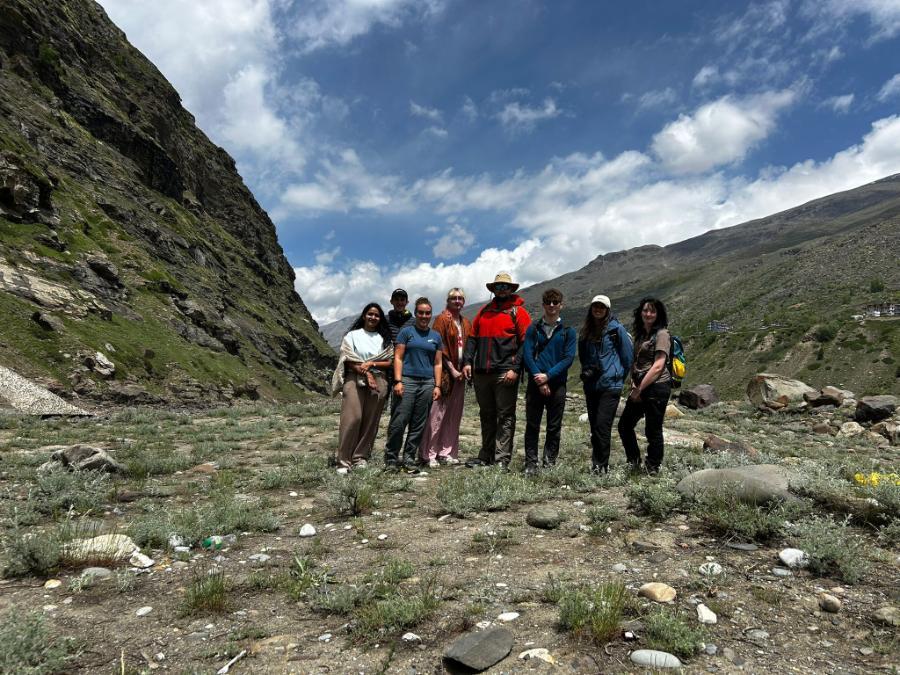.jpeg)
Building Connection: Rethinking Employee Engagement in the Digital Workspace
Olufunmilayo Liadi, Doctoral Researcher in Business, Industry and Leadership, University of Cumbria
Today, many organisations are integrating platforms like Microsoft Teams, Slack, and Yammer into everyday working life. These tools, known as Enterprise Social-Media (ESM), go far beyond team updates or chat threads. They are digital environments where workplace culture and employee engagement are actively created, shared, and negotiated.
Olufunmilayo’s research explores how employees engage with work through these platforms—not just through meetings or formal surveys, but via emojis, shout-outs, hashtags, and everyday digital rituals, to ask how do people describe and perform engagement in ESM interactions?
Traditionally, engagement is viewed as an internal experience that reflects an individual's level of motivation, satisfaction, or commitment, but the way people now express that engagement is evolving. Today, recognition and connection might come in the form of a “Great job!” comment, a gif celebrating a team win, or a supportive emoji dropped into a chat.
Engagement is no longer just personal, it is social, visible, and shaped by digital interactions.
To explore this shift, Olufunmilayo’s research uses a social constructionist approach. Rather than treating engagement as something that lives “inside” a person, Olufunmilayo will examine how meaning is built through shared actions, language, and habits online. Research indicates that ESM platforms foster new modes of communication that influence how employees engage.
To explore how employees co-create engagement through their digital exchanges. Olufunmilayo will draw upon social science theories that present reality as shaped through social interaction that learning as taking place through social tools like language and technology
Olufunmilayo’s PhD research will involve:
- Analysing real-world ESM interactions (subject to university ethics approval)
- Interviewing employees across a range of different sectors and career stages
- Exploring how digital behaviour reflects learning, inclusion, and workplace culture
Olunfunmilayo says ‘I am especially interested in how power and hierarchy show up in these spaces. For instance, do junior employees feel comfortable tagging senior leaders? Are moments of success publicly acknowledged or quietly overlooked? These are not just technical questions but deeply human ones. In a fast-changing business environment driven by digital interactions, memes have become a significant means of shaping organizational culture.
Ultimately, my research aims to help organisations design more thoughtful, inclusive digital spaces. Engagement is not simply about activity levels or survey scores but about how people build relationships, feel recognised, and find purpose through everyday digital moments. As organisations shift toward remote and hybrid working models, understanding the emotional life of digital interaction becomes crucial. Next time you react to a colleague’s post, remember that a click, emoji, or comment might be helping build a culture of connection. That is something worth paying attention to.’
Want to find out more about our Postgraduate Community?
A postgraduate research degree at the University of Cumbria offers the perfect opportunity to follow your passion, enhance your skills and influence the world around you. As the blogs here show, we are home to a rich community of people from all kinds of backgrounds and career points.
Rated as the best University in the UK for overall PhD experience in 2025, Cumbria offers a welcoming, supportive and challenging environment to utilise your enthusiasm and knowledge and turn it into insightful and impactful work. If you are interested in undertaking a research degree with us, then please contact Professor Tom Grimwood via Tom.Grimwood@cumbria.ac.uk for a conversation.

.jpg)


.jpg)